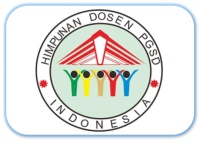Pengaruh Penerapan Model Discovery Learning Terhadap Hasil Belajar Siswa pada Pembelajaran IPS di SD
Abstract
This study aims to determine the effect of the application of themodel Discovery Learning on student learning outcomes in social studies learning. This type of research is quantitative with the research method used in this study is experimental research. The sampling technique uses Simple Random Sampling. The sample in this study amounted to 33 students. The data analysis technique in this study used a prerequisite test in the form of a normality test, homogeneity test, and hypothesis testing using the t-test. Based on the results of the study obtained the average value of thevalue pretestof 32 for the experimental class of 35.73 for the control class. The averagevalue posttest was 82.67 for the experimental class and 68.53 for the Control class. Based on the t-test calculation obtained that tcount > ttable (14.14 > 2.04), at a significant level of 0.05.
Keyword : Discovery Learning, IPS Learning, Learning Outcomes
References
Arikunto, Suharsimi. 2016. Manajemen Penelitian. Jakarta: Rineka Cipta
Faturrohman, Muhammad. 2015. Model-Model Pembelajaran Innovatif. Yogyakarta: AR-Ruzz Media
Hanafi. 2016. The Effect of Discovery Learning Method Application on Increasing Students’ Listening Outcome and Social Attitude. Muhammadiyah University of Jember East Java: Dinamika Ilmu
Hosnan. 2014. Pendekatan Saintifik dan Kontekstual dalam Pembelajaran Abad 21. Bogor: Ghalia Indonesia
Rahayu, Dwi. 2016. Pengaruh Penerapan Model Pembelajaran Discovery Learning Terhadap Hasil Belajar IPS Pada Siswa Kelas 4 SD. Salatiga : Universitas Kristen Satya Wacana Salatiga
Sani, Ridwan. 2014. Pembelajaran Saintifik untuk Implementasi Kurikulum 2013. Jakarta: Bumi Aksara
Sugiyono.2017. Metode Penelitian Kuantitatif, Kualitatif, dan R & D. Bandung: Alfabeta
DOI: http://dx.doi.org/10.24036/e-jipsd.v6i2.4408


